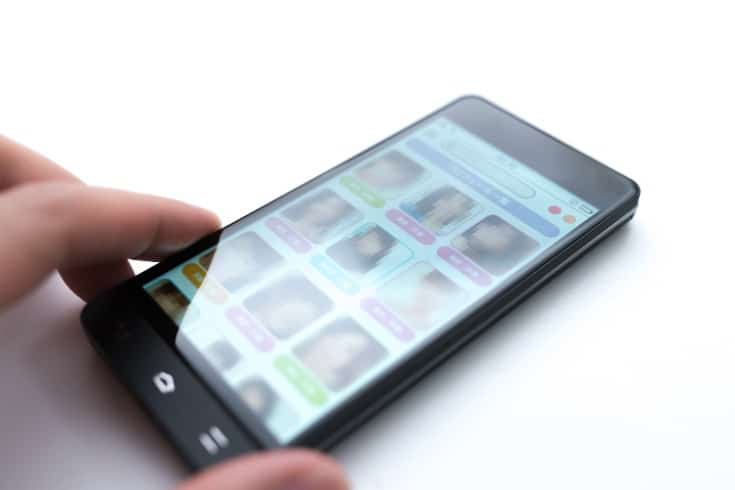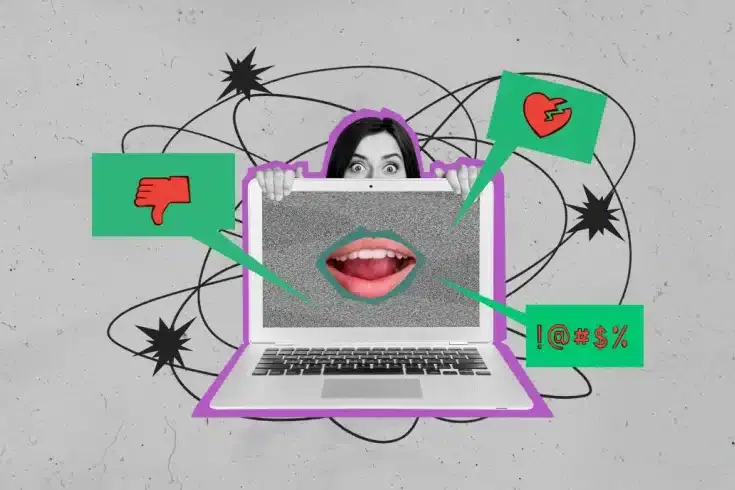Removal of Impersonation and Requests for IP Address Disclosure

Impersonating someone as a method of defamation has been a common practice for a long time.
For example, one might create a Twitter account with the same name as a specific woman, or use a very similar username, and use a photo of that woman on the top page. They might then upload obscene images or list the woman’s email address, soliciting relationships with unspecified men. In such cases, the person being impersonated needs to claim some kind of ‘rights’ violation related to themselves in order to request the removal of the article or the disclosure of the IP address. Generally speaking, to request the removal of a post on the internet or the disclosure of an IP address, it is not enough to simply claim that the post is ‘inappropriate’. It is necessary to claim that ‘my rights have been violated by this post’.
What is Rights Infringement by Impersonation?
The term “rights” may seem complex, but let’s consider the following example:
Creating a Twitter account under the same name as a specific woman, using her face photo on the top page, and uploading obscene images (※1)
In this case, third parties who see this sort of posts will get the impression that the woman herself is the person uploading the obscene images. In other words, the perpetrator has:
Impersonated the specific woman as someone who uploads obscene images (※2)
This means that the perpetrator has achieved the same effect as writing that the specific woman is someone who uploads obscene images, by impersonating her. Both ※1 and ※2 are acts that infringe on the honor rights of the specific woman.
Beyond honor rights, if, for example, your email address is disclosed or your photo is used in the process of impersonation, you may also claim privacy rights infringement or portrait rights infringement.
However, there are certain conditions for the removal of impersonation and the disclosure of IP addresses to be permitted.
Determining the Presence of Identity Fraud
In order to claim that one’s honor, credit, privacy rights, and personality rights have been violated by a post impersonating someone else, it is necessary that a general person with normal judgment could mistakenly recognize the person who made the impersonating post and the victim as the same person.
A plaintiff who was planning to build a condominium in Toshima Ward, Tokyo, requested Yahoo! JAPAN to delete an article and disclose the sender’s information, claiming that a post was made using the plaintiff’s name in the form of the plaintiff’s answer to a post on the Yahoo! bulletin board.
In this lawsuit, the Nagoya District Court stated on January 21, 2005 (Gregorian calendar year), that the post in question was made using a poster name that appears to be the plaintiff himself, and “When an expression act using someone else’s name is performed, the name holder (the person whose name is used) appearing on the expression act is mistakenly recognized as the subject of the expression act, resulting in the possible violation of the name holder’s honor, credit, privacy rights, and personality rights.” However, in this case, the content of the post was “Now, a one-room condominium. A mistaken new business. The worst,” and it was described as the behavior of those opposed to the condominium construction, and the content that the plaintiff himself would never write, so it was clear at a glance that “the post in question could not be mistaken as a post by the plaintiff himself,” and all of the plaintiff’s claims were dismissed.
Although the ID was made up of the company name and the name of the manager, it was judged that a general person with normal judgment could not mistakenly recognize the subject of the post in question as the plaintiff, considering the ID and the content of the post.
In order for an accusation of identity fraud to be recognized, the identity fraud must be established.
Whether Rights Were Infringed by Impersonation
In 2016 (Gregorian calendar year), there was a court case where a man claimed that his rights to identity, privacy, image, and reputation were violated due to a third party impersonating him and posting on an internet bulletin board. He requested the intermediary provider to disclose the sender’s information.
The Osaka District Court acknowledged the impersonation, stating, “The account in question used the plaintiff’s face photo as a profile picture, and used a name (the handle name in this case) that was a play on the plaintiff’s real name, ‘B’, displayed as ‘B’. Therefore, it can be recognized that the post in question was made by a so-called third party impersonating the plaintiff.”
Furthermore, the court examined whether it could be clearly stated that the plaintiff’s rights were violated due to the sender impersonating the plaintiff and making the post. However, it concluded that based on the normal caution and interpretation of an average person, it could not be recognized that the plaintiff’s social evaluation was lowered by the post in question.
In addition, the plaintiff’s face photo used as the profile picture of the account in question was uploaded by the plaintiff himself as his profile picture when he registered on the site about five years ago. Since the plaintiff himself made it public on a SNS site where an unspecified number of people are expected to view it, it could not be recognized that the plaintiff’s privacy rights were violated by its use. Furthermore, since the plaintiff’s face photo was made public by the plaintiff himself, it could not be recognized that the plaintiff’s image rights were violated by the post in question.
The Right to Not Be Impersonated: The “Right to Identity”
In this trial, the focus was on the judgment regarding the infringement of the right to identity. The verdict argued that the act of impersonation itself is an infringement of one’s right to identity, stating to the plaintiff:
“Indeed, maintaining personal identity in relationships with others is essential for personal existence. Even in cases where impersonation, which does not fall under defamation, invasion of privacy, or infringement of portrait rights, is carried out, for example, if a different personality other than the person himself is constructed by the act of impersonation, and such a different personality’s words and actions are perceived by others as the words and actions of the person himself to the extent that they are accepted, and the person who has been impersonated suffers mental distress to the extent that it becomes difficult to lead a peaceful daily life and social life, the infringement of the right to identity in the sense of ‘the interest of maintaining personal identity in relationships with others’ can be an issue.”
Osaka District Court, February 8, 2016
It was concluded.
In this case, since it was pointed out by others immediately after the act of impersonation that the post might have been made by someone other than the plaintiff, and the photo and handle name that remind of the plaintiff were deleted from the bulletin board in a little over a month, even if there could be a case where a tort is established as an infringement of the right to identity as a personal right, it was not possible to recognize that an act of impersonation that infringes on the personal identity of an individual, which could be the subject of damage compensation, was carried out in the examination of this post, and it was not recognized that either the right to identity, the right to privacy, the right to portrait, or honor was infringed.
In the end, since “just impersonating” does not infringe on any rights, the request for disclosure of sender information was dismissed. However, this trial became a topic of discussion as the first one to recognize the right not to be impersonated by others as the “right to identity”.
Profile Photos and Privacy Rights・Portrait Rights

A man residing in Nagano Prefecture filed a lawsuit seeking damages from a man in Hirakata City, Osaka Prefecture, claiming that his portrait rights and other rights were violated by posts impersonating him on the GREE bulletin board. The verdict was delivered on August 30, 2017 (Heisei 29), and the Osaka District Court ordered the defendant to pay damages.
Prior to this lawsuit, the plaintiff had filed a lawsuit in October 2015 (Heisei 27) seeking disclosure of the sender’s information. The first trial was dismissed, but in October 2016 (Heisei 28), following the disclosure order judgment of the Osaka High Court, the defendant was identified and a lawsuit seeking damages was filed.
In the judgment, it was acknowledged that the posts were impersonations, stating, “Based on the normal attention and reading of general viewers, it is reasonable to recognize that the posts in question are mistaken as being made by the plaintiff.”
Furthermore, since all the posts were content that insulted and slandered others, giving third parties the misunderstanding that the plaintiff is a person who insults and slanders others without basis, it was recognized that the plaintiff’s honor rights were violated as it lowered his social evaluation.
Regarding the infringement of privacy rights, privacy rights are generally understood to protect the freedom of private life and the interest or right not to have facts or information about private life that one does not want to be known to others arbitrarily disclosed. However, in this case, the plaintiff had set the face photo used by the defendant as his profile image on GREE himself, and it was placed in a public domain accessible to an unspecified number of people by the plaintiff himself, so it was judged that it does not fall under the facts or information about private life that one does not want to be known to others. This is the same judgment as previous lawsuits.
However, regarding portrait rights, the defendant used the plaintiff’s face photo as the profile image of this account and made posts that would lower the plaintiff’s social evaluation, so it was not possible to recognize the legitimacy of the defendant’s use of the plaintiff’s portrait. It was recognized that the defendant insulted the plaintiff and violated the benefits related to the honor feelings tied to the plaintiff’s portrait rights. In other words, even if the plaintiff disclosed the face photo, unauthorized use of it was recognized as a tort due to infringement of portrait rights.
Was the Infringement of Identity Rights Recognized?
In this judgement, regarding identity rights, it was stated:
“The act of an individual maintaining their self-identity is a prerequisite for personal existence, and striving for self-realization in social life is also an important element of personal existence. Therefore, maintaining personal identity in relation to others should also be considered essential for personal existence. Consequently, the interest in personal identity as seen by others can be understood as a personal interest protected under tort law.”
Osaka District Court decision,, August 30, 2017 (2017)
As with the Osaka District Court ruling in February 2016, the existence of identity rights was recognized. However, it was also stated:
“It should not be interpreted that a tort is immediately charged just because the personal identity as seen by others is falsified. Instead, the intent and motive of the impersonation, the method and manner of the impersonation, and the presence and degree of disadvantage suffered by the impersonated person due to the impersonation should be comprehensively considered. It should be determined whether the infringement of the interest in personal identity exceeds the tolerable limits in social life, and whether the act has illegality.”
ibid
For GREE users, since account names and profile images can be freely changed, they are different from names that symbolize a person’s personality and identify the individual for a lifetime. The connection between the user and the account name/profile image, or the degree to which the account name/profile image symbolizes a specific user, is not necessarily strong. Therefore, the infringement of identity rights was not recognized.
Summary
Both the Osaka District Court’s verdict on February 8, 2016, and the Osaka District Court’s verdict on August 30, 2017, consider the scope of the right to identity as the part not protected by the rights of honor, privacy, and portrait.
In the Osaka District Court’s verdict on February 8, 2016, the requirement was that “the person who was impersonated suffered mental distress to the extent that it was difficult to lead a peaceful daily and social life.” However, in the Osaka District Court’s verdict on August 30, 2017, it has become considerably more lenient, questioning whether “the infringement of the interest in the identity of the personality exceeds the limit of social tolerance.”
In traditional precedents, there was no infringed right in the case of “just impersonating.” Therefore, these two precedents that recognized the right to identity can be said to be a significant step forward.
If the court recognizes the right to identity, even in cases that do not fall under defamation, etc., it will be possible to take procedures such as deletion and “request for disclosure of sender information” for identifying the perpetrator in general “impersonation”.
We would like to keep an eye on the precedents related to the right to identity, which are likely to increase in the future. In this process, the scope and requirements of the right to identity will become further clarified.
Category: Internet





















